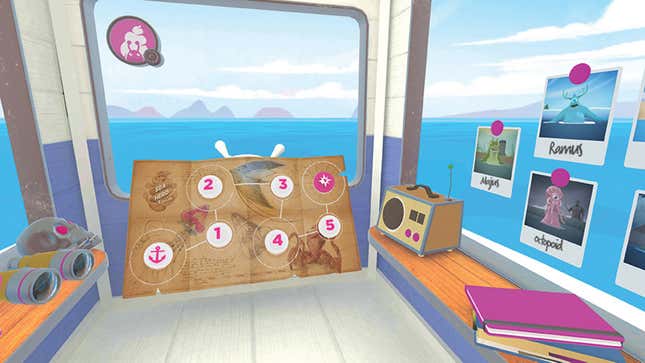
Sea Hero Quest is a video game developed in partnership with Germany’s Deutsche Telekom, game studio Glitchers and several European universities and it is designed to identify individuals who might have early and mild symptoms of dementia that medical tests aren’t able to detect.
When most folks think of Alzheimer’s disease they think of an illness that ruins a person’s memory. But while memory problems are very common and severe with Alzheimer’s disease, these are late-stage symptoms. Researchers and doctors want to catch the disease as early as possible, before memory loss occurs, to give future treatments the best chance at working.
Sea Hero Quest was built as a way to identify people who might be at risk of Alzheimer’s but who aren’t yet suffering any major symptoms of the disease and according to a study recently published in the journal PNAS, it seems the game is effective.
In Sea Hero Quest, which is a VR game, players have to navigate and control a virtual boat. They are given a map and shown checkpoints, then the map is taken away and players must navigate to these checkpoints in the game world without the map.
According to researchers, every two minutes spent playing the game is equal to five hours of lab-based research. Because Sea Hero Quest has been out for a few years and downloaded and played by over three million players they’ve collected the equivalent of 1,700 years of research data on Alzheimer’s.

Researchers involved with the project studied people who carried the APOE4 gene, which is thought to increase that person’s risk of developing dementia, as they played the game. They then compared these people’s results to the results of folks who played the game who don’t have that gene.
“We found that people with a high genetic risk, the APOE4 carriers, performed worse on spatial navigation tasks. They took less efficient routes to checkpoint goals,” said Professor Michael Hornberger, a member of the team.
Using data gathered from thousands of players who downloaded and played Sea Hero Quest, researchers were able to create a baseline that their test results could be compared to. In the future, the team hopes this data and the game will help identify people who need treatment for dementia before they begin suffering from some of the worse later stage symptoms.